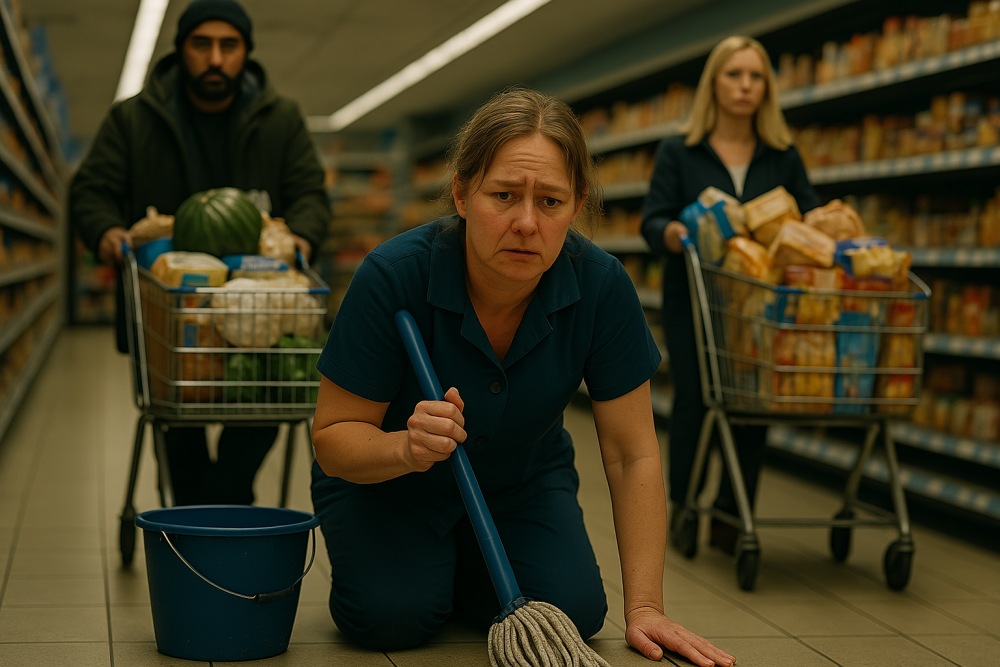Who’s to Blame, and What’s Next? How to Make Britain Great Again?
I find myself thinking, oddly enough, of Herzen — the famous philosopher who once asked, “Who is to blame? And what is to be done?” Strange bedfellows, perhaps. But as I look around modern Britain, the question feels more relevant than ever.
There was a time when the world looked to us — not out of fear or ridicule, but with a kind of admiration only earned, never inherited. And yet, here we are.
Five years post-Brexit, three Prime Ministers later, and the only thing rising faster than inflation is national disillusionment.
Many of us are quietly asking: Who’s to Blame, and What’s Next? How to Make Britain Great Again — if that’s even still possible.
A Farmer’s Truth: Forgotten Voices in a Loud World
On a wet Thursday afternoon in Norfolk, over a pint in a local pub, I spoke with James — a farmer whose patience has worn thin.
“I pay more, get less. The taxes keep going up, the paperwork never ends,” he told me. “And now they say we’ve got to tighten our belts again — for what? For another war we didn’t ask for?”
I suggested our support for Ukraine was about solidarity. He didn’t flinch, but his eyes narrowed.
“Solidarity?” he said. “I can’t even get a doctor to look at my boy’s lungs. He’s sixteen. Asthma. They said he’d need a scan. That was in December. Still waiting. But there’s always money for rockets, isn’t there?”
His voice broke, not from rage, but from helplessness.
“What do I care about Ukraine? I can’t pay my electric this month. I’m a British and I feel like a stranger in my own country.”
A Nation Stretched Thin
What struck me wasn’t just James’s frustration — it was the quiet resignation that greatness now belongs to the past tense.
Steel plants closing. Town centres hollowing out. A shrinking Navy. Record debt. Surging prices. And somewhere between TikTok outrage and political theatre, we've lost the thread.
I met Emily in Hartlepool. She’s a single mum of two, working nights at a supermarket and cleaning offices during the day.
“They told us we’d take back control,” she said, “but now I feel more lost than ever.”
She glanced down at her phone, checking the banking app before picking up a £1.75 bag of grapes.
“I work sixteen hours a day, and I still have to count coins to buy fruit for my kids. Meanwhile, there’s families just off the boat getting free housing, healthcare, legal aid... everything. I know it’s not their fault. But is it mine?”
There was no hatred in her voice — only quiet hurt.
“My granddad fought in the war. My nan worked in a munitions factory. They built this country. And now I’m told I should just shut up and be grateful for what’s left.”
Her eyes welled up, but she didn’t cry. She wasn’t looking for pity. She was asking the same question James did, in her own way:
“Who’s looking out for us?”
Somewhere between liberty and logistics, something cracked.
The NHS: From Jewel to Afterthought
The NHS — once our greatest post-war achievement — is collapsing under its own weight. GP appointments are mirages.
Hospital corridors resemble war zones. Ambulances queue outside like taxis at midnight.
No one wants to say it out loud, but we all know it: the system is broken. And the more we’re told to clap, the less we see reason to believe.
Immigration is now a conversational landmine. But when you’re waiting six months to get your child a check-up — you start to wonder where the money really goes.
British Steel and Global Silence
British Steel. Tata. Port Talbot. Names that once meant power now sound like obituaries. The loss of our steel capacity is more than industrial — it’s existential.
Because it’s not just about jobs. It’s about security. It’s about sovereignty. When the last furnace goes cold, we’re not just outsourcing production — we’re outsourcing defence. And people feel it.
“How are we meant to stand up to anyone,” one retired dockworker in Barrow asked me, “if we can’t even make our own steel?”
His voice trembled — not from anger, but from something closer to fear. Not the dramatic, headline kind.
The quiet fear that we’re becoming spectators in our own future. And that, if the winds shift, we’ll be told once again that we must fight — this time with borrowed weapons, imported alloys, and no factories left to rebuild.
Some quietly ask what others only dare think: are we really ready for war with Russia? And if not — why are we walking in that direction?
Meanwhile, global players — let’s not name names — quietly build, expand, and arm. One of them produces more steel in a month than we do in a year. But don’t worry. We’ve got slogans.
We’re told we’re still a “leading power.” That we “punch above our weight.” It’s true, in the way a cornered boxer punches — not out of strength, but desperation.
Who’s to Blame, and What’s Next?
So really, Who’s to Blame, and What’s Next? How to Make Britain Great Again? — not just in slogans, but in action?
The voters? The technocrats? Brussels? Westminster? Or maybe no one at all — which is somehow worse.
Because if everyone’s to blame, how do we begin again? And if no one is, how do we hold anyone accountable?
What would it even mean to make Britain “great” again? More ships? More steel? Or just more honesty?
James asked me, just before we parted: “Do you think they even hear us anymore?”
I didn’t have the heart to answer.
But maybe you do.
So tell us: Who’s to blame? And what should we do next?
Join the conversation in the comments on our social media channels.
